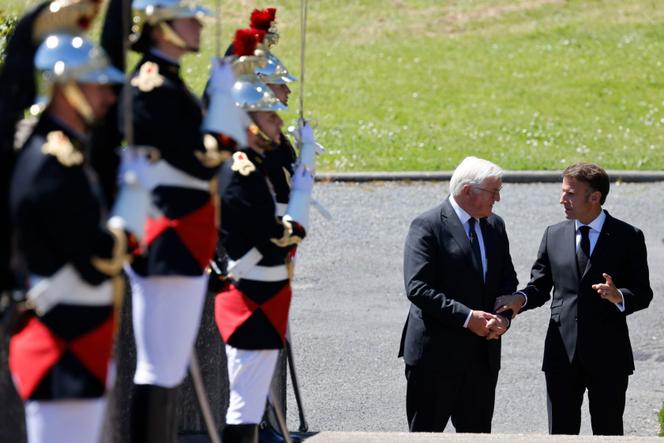


It was as if nothing had happened, despite the political earthquake. The day after the Assemblée Nationale was dissolved, President Emmanuel Macron visited Oradour-sur-Glane in central France, as had long been planned before the presidential camp's debacle in the European elections. On Monday, June 10, in this village martyred to the Second World War, whose 643 inhabitants were murdered by the Nazis 80 years ago, the French leader once again met with German President Frank-Walter Steinmeier, who had welcomed him on a state visit to his country at the end of May. The two men made no comment on the domestic situation in France, despite the shockwaves that the decision to dissolve the French government has caused abroad. There was also no comment about the inevitably negative impact of this decision on the French president's influence on the international stage, especially in the event of a far-right Rassemblement National (RN) victory in the parliamentary elections on June 30 and July 7.
This blow was all the more resounding given that Macron had played the European and international card to the hilt in the final days of the campaign. After his trip to Germany, where he was quick to warn of the "ill wind" blowing across a "mortal" Europe, to warn of the rise of extremes, the president welcomed the heads of state and government invited to Normandy for the 80th anniversary of D-Day.
The Ukrainian president, Volodymyr Zelensky, and the American president, Joe Biden, visited Paris at the same time, in order to further consolidate the European leadership that Macron has been claiming until now. The richly symbolic sequence of speeches that clearly failed to sway voters' choices.
As early as this week, the French president's latest gamble is already threatening to affect his influence at his international engagements, notably the G7 leaders' summit in Puglia, Italy, from June 13 to 15. To make matters worse, Macron will be welcomed there by one of the big winners of the European election, Italian Prime Minister Giorgia Meloni, a key figure of the continental far right, to the point of having become a kind of reference for Marine Le Pen and her troops, despite their disagreements, particularly on Ukraine and Russia.
Macron's participation in the peace summit organized by Kyiv and Swiss diplomacy near Lucerne on June 15 is likely to be swift, on his return from the Italian G7 summit. The French president also has appointments in Brussels to keep, notably the dinner on June 17 with the 27 member states to discuss the impact of the European election results on the choice of the next leaders of the EU bodies, the presidents of the Commission and the European Council, and the EU High Representative. After a further European Council meeting on June 27 and 28, he is expected to cancel a trip to Morocco in early July, scheduled to take place a few days before the second round of parliamentary elections.
You have 61.65% of this article left to read. The rest is for subscribers only.
